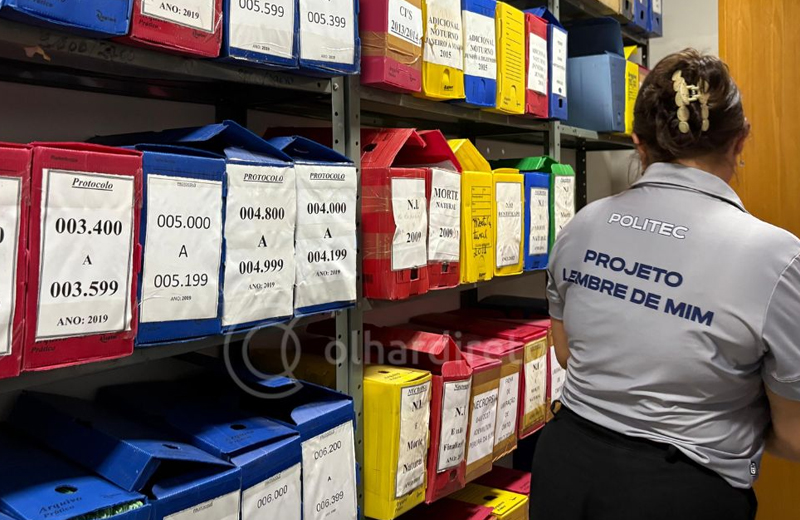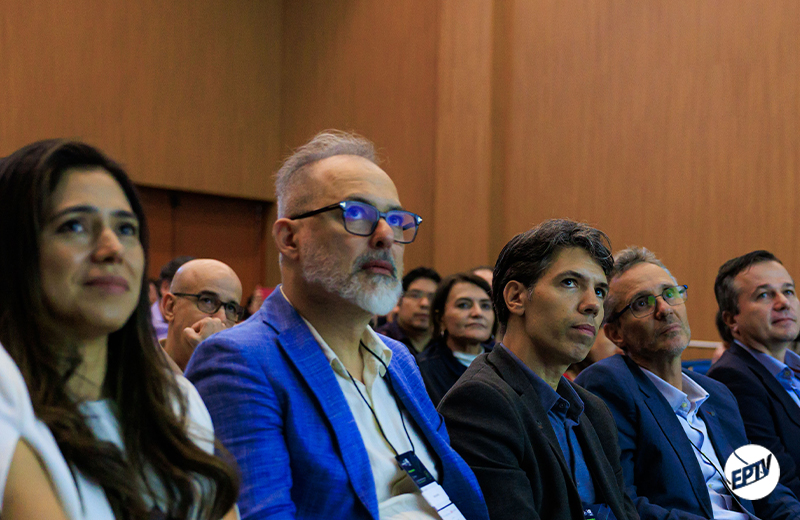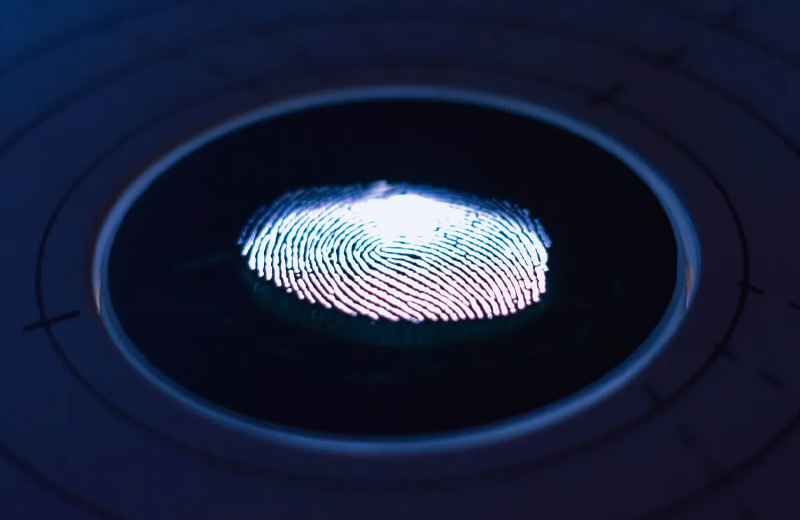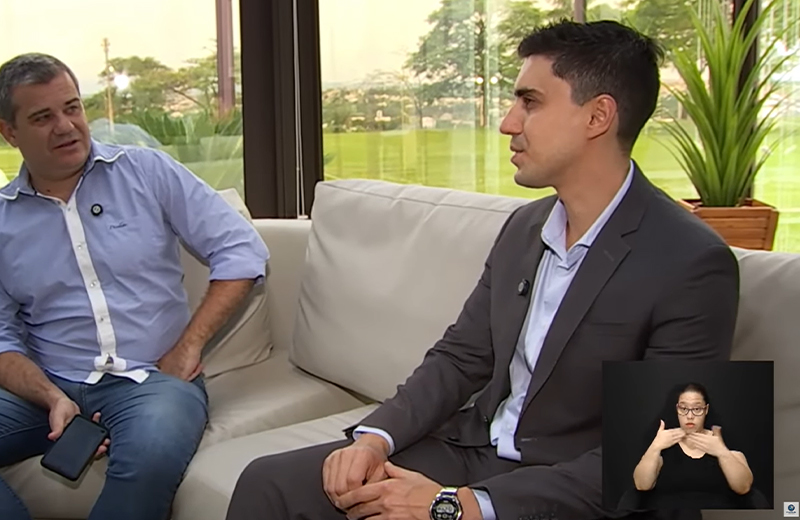The choice of 100% national software to certify and manage the database of the Superior Electoral Court (TSE) will serve as the foundation for what will be the world's largest biometric fingerprint identification system. The contract for the supply of large-scale fingerprint verification systems, valid for two years and worth R$82 million, was signed last month between the federal electoral body and Griaule, a small Brazilian company from Campinas, in the interior of São Paulo. The agreement gives continuity to the TSE's plan to prevent electoral fraud and speed up the results of the elections even more.
Griaule is one of the most successful examples of a start-up born in the State University of Campinas (Unicamp) business incubator. While it was based there, from 2002 to 2005, the company received financial support from FAPESP's Innovative Research in Small Businesses (PIPE) program. Recognition came in 2005 when the company was chosen for the Finep Award (Financier of Studies and Projects) from the Ministry of Science, Technology and Innovation (MCTI), in the category of small company in technological innovation. The following year, the biometric system developed by Griaule took first place in the Fingerprint Verification Competition - FVC2006 - as the world's most accurate fingerprint verification technology. The global competition is organized in partnership between the University of Michigan and the University of San Jose, both in the United States, the University of Bologna, in Italy, and the Autonomous University of Madrid, in Spain. After winning the award, the company opened a commercial office in Mountain View, California, in February 2007 and began exporting its services. Its clients are now spread over more than 50 countries.
When it left the institution's campus and tried to walk on its own two feet, businessman Iron Daher's Griaule recorded a turnover of R$100,000 in 2005. The figure jumped to R$12 million in just the five months of 2014, still not counting the contract signed with the TSE. "I think the company's growth was very slow, it didn't happen overnight. Our turnover has risen and fallen a few times over the last decade. However, last year we managed to double our turnover and went from R$3 million in 2012 to R$6 million in 2013," explains Daher, who is the company's president and chief scientist. Griaule's product range includes fingerprint, voice and face recognition software. But the fingerprint recognition system is almost the entire range of services offered by the company.
The implementation of the Brazilian company's fingerprint recognition and authentication system will take place in two stages. The software will first have to process 23 million biometric voter records already stored by the TSE. This should happen up to a month before the October elections, according to the contract. Secondly, the system will guarantee the 52.8 million biometric registrations that the TSE intends to collect until the 2016 elections. The agreement with the federal electoral body is a consortium between Griaule and Oracle, a US multinational in the database and hardware business. Griaule, which is responsible for supplying the software, has 44% of the project and Oracle, which will supply the equipment, 56%.
The larger the database, the more processing is required to include new voters. This is because the computers involved in the operation will have to completely scan the records to avoid duplicate registrations. "To give you an idea of the complexity of the task, it's important to note that the fingerprints of each person's 10 fingers are collected. Thus, the recognition software will have to process a volume of data in the order of quintillions," says Felipe Bergo, a researcher at Griaule.
The server, a supercomputer with almost 1,500 processing cores, comes to Brazil from the United States. There are four towers capable of comparing 3 million fingerprints per second. The machines will be installed in a safe room located in the TSE's data processing center in Brasilia. "Our job will be to clean up the TSE's database, which has 23 million people already registered, and make sure there are no duplicate voters. Then we will certify the registrations," says Daher. "There may be people who register twice by mistake, or even people who register with different IDs and titles so that they can vote more than once," he adds.
End of 2017
Although elections in Brazil have been computerized since 2010, with the implementation of electronic voting machines in 100% of polling stations, the TSE has registered the fingerprints of only 15% of Brazil's 142.4 million voters. Most polling stations still recognize voters by means of their voter registration card and signature. With its Biometric Voter Identification Program, which began in 2012, the TSE plans to have the entire Brazilian electorate biometrically registered by the end of 2017, when the total number should be 160 million.
These records contain sensitive information on millions of Brazilians, which is why they are considered to be of high strategic value. "There are many intangible values involved in this operation," says Daher. "If it weren't for Griaule, Brazil would be buying this technology from another country and voters' identities would be outside our domain," says the company's president, recalling the espionage cases involving the US government, in which sensitive information from various countries, companies and foreign governments was monitored, including President Dilma Rousseff and Petrobras.
Griaule's significant growth has had the fundamental participation of innovation promotion agencies at state and federal level, through research funding. "All of this was only possible because back in 2002, Unicamp gave us the opportunity, which brought a lot of credibility. At that time there was still no incubation agency at the university. We also have to remember the support we received from both FAPESP and Finep," recalls Daher. "If it hadn't been for the two Pipes from FAPESP, one for fingerprint recognition and the other for voice recognition, we wouldn't have been able to get to this point."
Griaule's business success doesn't stop here. The executives' idea is to take the company to the world market, with a real chance of becoming one of the first Brazilian multinationals in the computing sector. The company has a lean structure, which includes 20 employees working in an administrative office and a software development office in Campinas, both very close to the Unicamp campus, as well as a commercial office in the United States. Now that the business is growing, there is a need to hire staff for job vacancies inside and outside Brazil. There are opportunities in countries such as Colombia, Ecuador, Mexico, Argentina, etc. "We should be selling one TSE-sized project a year from now on," says the researcher. "That's why we plan to double the number of employees by the end of this year and double it again by December 2015."
The professional that Griaule focuses on, according to its own president, is different. The company is looking for professionals with a taste for research and development. "This person has to excel in the field, because we deal with cutting-edge technology and we have to have people as good as those who work for companies in the United States or Europe," says Daher. "There's no shortage of technology or infrastructure right now. Our real problem is the need for brains," he adds. According to Griaule's projections, the biometric certification sector has experienced a boom in the last two years in Brazil, although it's almost impossible to know exactly how big it is. As it is very new and needs to consolidate itself, there are no surveys that allow entrepreneurs to size up this sector. "I believe that the sector has a turnover of almost R$1 billion here in Brazil alone," Daher estimates.
Whether to remain just a software supplier or also explore the hardware sales sector, with the manufacture of its own fingerprint reader, was one of the first dilemmas faced by Griaule's managers. For Daher, the idea was always there, but was discarded because it represented too great a risk. "If we went into this business, we would have to worry about hiring electronics staff, logistics and having a physical space for the factory," he recalls. Instead of creating its own hardware, the company opted to develop a program that would interface with more than 50 types of fingerprint reader on the market, as well as investing heavily in meeting the new demands that were emerging.
"We recently integrated fake finger detection into our software for any reader. What was the big problem that the reader manufacturer had? It was the fake finger. Thanks to the tutorials available on the internet, it became very easy to make a silicone or latex finger," explains Daher, who decided to take on the problem as a personal challenge. "Neither hardware manufacturers realized this market need, nor software giants saw it as a responsibility to solve this issue. That's when Griaule solved the problem via software. Today, hardware manufacturers no longer have to worry about this."
Other documents
Griaule's services are on the rise due to the Brazilian government's option to digitize the issuing of passports, electoral titles and identity cards, but banks are also well involved in this market. In December 2013, for example, Griaule signed a global contract to supply its software to the Spanish bank Santander, as well as offering biometrics solutions to Caixa Econômica Federal, which covers 30,000 ATMs (self-service units) and another 25,000 service points in lottery shops. Other clients served by the Brazilian company are banks in South Africa and India. But banking institutions have a large share of the biometric identification market worldwide. "With Griaule technology or not, we see that banks are adopting biometrics because it's a way of offering convenience to customers who don't need a password, much more than security," says Daher. This is the case with the Bolsa Família payment transfer system with Griaule technology adopted by Caixa Econômica Federal. "These are people who withdraw their money once a month and end up forgetting their password. Now they no longer need a card or password to access it, they just have to register and withdraw the money using only their fingerprint as identification," says Daher.
On both the international and local markets, biometric identity certification is being fought over by four large multinationals based in the United States, Japan and Europe. The smallest of them has a turnover of around US$1 billion a year. "They are multi-billionaires, but they don't specialize in this market. And perhaps this is the big difference between them and Griaule, which is a small company but highly specialized in the subject," says Daher. With the idea that the world scenario is in the process of changing, Griaule believes that the flow of technological innovations is no longer just from abroad to Brazil. "When it comes to large-scale biometric identification systems, Griaule ends up becoming recognized from a technical point of view. And this has a very high technological added value," says the researcher.
This excerpt is part of the full content published by Revista Pesquisa Fapesp on June 20, 2014, available at this link.






